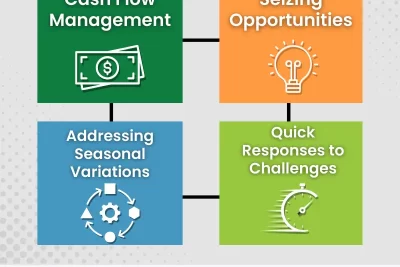
Ultimate Guide: How to Get Into the University of Texas in 2023

- Understanding the Admission Requirements for the University of Texas
- Tips for Crafting a Standout Application to the University of Texas
- Essential Deadlines and Dates for University of Texas Admissions
- How to Write an Impressive Personal Statement for the University of Texas
- Resources and Support for Prospective Students at the University of Texas
Understanding the Admission Requirements for the University of Texas
The University of Texas (UT) has specific admission requirements that vary depending on the level of education and the program of study. Understanding these requirements is crucial for prospective students to enhance their chances of acceptance. Generally, applicants must submit a completed application, which includes academic records, standardized test scores, and other supporting documents.
Undergraduate Admission Requirements
For undergraduate programs, the following are essential components of the admission process:
- Application Form: Prospective students must complete the ApplyTexas or Coalition application.
- High School Transcript: An official transcript demonstrating completion of high school coursework is required.
- Standardized Test Scores: SAT or ACT scores are typically required, although some programs may have test-optional policies.
- Essays: Applicants must submit essays that reflect their personal experiences and motivations.
- Letters of Recommendation: Some programs may request letters from teachers or counselors.
Graduate Admission Requirements
For graduate programs, the admission requirements can be more specific and may include:
- Application Form: A completed application tailored to the specific graduate program.
- Transcripts: Official transcripts from all post-secondary institutions attended.
- Standardized Test Scores: Many programs require GRE or GMAT scores, though some may waive this requirement.
- Statement of Purpose: A detailed essay outlining academic interests and career goals.
- Resume/CV: A current resume that highlights relevant experiences and accomplishments.
Understanding these requirements and preparing the necessary documents well in advance can significantly improve the likelihood of a successful application to the University of Texas. Each program may have unique criteria, so it’s important for applicants to review the specific guidelines for their intended field of study.
Tips for Crafting a Standout Application to the University of Texas
When applying to the University of Texas, your application needs to reflect not only your academic achievements but also your unique personality and aspirations. To help you create a compelling application, consider the following tips:
1. Showcase Your Academic Excellence
The University of Texas values academic rigor and achievement. Make sure to highlight your GPA, standardized test scores, and any honors or advanced courses you have completed. Additionally, provide context for your academic performance by discussing any challenges you overcame or unique circumstances that influenced your educational journey.
2. Personalize Your Essays
Your essays are an opportunity to express who you are beyond your grades. When writing your personal statement, focus on your passions, experiences, and future goals. Be authentic and reflective, sharing stories that illustrate your character and resilience. Use specific examples to demonstrate your commitment to your chosen field of study or community involvement.
3. Highlight Extracurricular Involvement
Admissions committees at the University of Texas look for well-rounded candidates who contribute to their communities. Include details about your extracurricular activities, leadership roles, and volunteer experiences. Be sure to explain how these activities have shaped your interests and values, and how they align with the culture and opportunities at UT.
4. Obtain Strong Letters of Recommendation
A strong letter of recommendation can significantly enhance your application. Choose recommenders who know you well and can provide specific insights into your abilities and character. Provide them with information about your goals and achievements, so they can tailor their letters to reflect your strengths and suitability for the University of Texas.
Essential Deadlines and Dates for University of Texas Admissions
When planning your application to the University of Texas, its crucial to be aware of the essential deadlines and dates that can impact your admission process. The timeline for admissions can vary based on the program you are applying for, so it’s important to stay informed about specific dates. Here are the key deadlines for undergraduate admissions:
- Application Submission: The priority application deadline for fall admission is typically on November 1, while the regular decision deadline is usually December 1.
- Supporting Documents: All supporting documents, including transcripts and test scores, should be submitted by December 15 for priority applicants and January 15 for regular decision applicants.
- Financial Aid: To ensure eligibility for financial aid, students must submit the Free Application for Federal Student Aid (FAFSA) by January 15.
For graduate programs, deadlines may differ significantly based on the specific department or school within the University of Texas. Many graduate programs have their own unique application timelines, often falling between December 1 and February 1. It’s advisable for prospective graduate students to check the individual programs website for the most accurate and updated information regarding their application deadlines.
Lastly, don’t forget about the importance of notification dates. For undergraduate applicants, decisions are typically released in late February or early March, while graduate applicants can expect to hear back anywhere from March to June, depending on the program. Being mindful of these essential deadlines and dates will help streamline your application process and enhance your chances of securing a spot at the University of Texas.
How to Write an Impressive Personal Statement for the University of Texas
Crafting a compelling personal statement for the University of Texas requires a strategic approach that highlights your unique experiences and aspirations. Start by understanding the specific requirements outlined by the university. Make sure to adhere to the word limit and formatting guidelines. A well-structured personal statement should include an engaging introduction, a detailed body, and a thoughtful conclusion that ties your experiences back to your academic and career goals.
1. Start with a Strong Introduction
Your opening paragraph should grab the readers attention and set the tone for the rest of your statement. Consider starting with a personal anecdote or a thought-provoking question that relates to your journey. This approach not only engages the reader but also gives them insight into your personality and motivations.
2. Showcase Your Experiences
In the body of your personal statement, delve into your academic achievements, extracurricular activities, and any challenges youve overcome. Use specific examples to illustrate your points, and connect these experiences to your desire to attend the University of Texas. For instance, if youve participated in community service or research projects, explain how these experiences have shaped your goals and prepared you for the rigors of university life.
3. Reflect on Your Goals
Conclude your personal statement by articulating your future aspirations and how the University of Texas aligns with them. Discuss specific programs, faculty, or resources at the university that will help you achieve your academic and career objectives. This not only shows your commitment to your chosen field but also demonstrates your knowledge of what the university offers, making your application more compelling.
Resources and Support for Prospective Students at the University of Texas
At the University of Texas, prospective students have access to a wealth of resources designed to guide them through the admissions process and enhance their academic journey. The universitys dedicated admissions team offers personalized support, ensuring that applicants understand the requirements and deadlines for their chosen programs. This team is available through various channels, including phone, email, and in-person consultations, making it easier for students to get the assistance they need.
Key Resources Available:
- Admissions Website: Comprehensive information about application procedures, deadlines, and requirements.
- Campus Tours: Opportunities to explore the campus and experience university life firsthand.
- Virtual Information Sessions: Online events that provide insights into academic programs, campus resources, and student life.
- Financial Aid Office: Guidance on scholarships, grants, and loans to help manage educational costs.
In addition to admissions support, the University of Texas offers various academic resources to help prospective students prepare for their studies. The Academic Advising Center provides assistance in selecting courses, understanding degree requirements, and developing academic plans tailored to individual goals. Furthermore, prospective students can take advantage of tutoring services, workshops, and study groups to build essential skills before they even step foot on campus.
For students considering relocation, the Office of Housing and Dining offers resources to help find suitable accommodation and meal plans that fit different lifestyles and budgets. The university also prioritizes mental health and wellness, providing access to counseling services and support groups designed to foster a positive transition into college life. With these extensive resources and support systems in place, prospective students at the University of Texas can feel confident and prepared as they embark on their academic journeys.
Did you find this article helpful? Ultimate Guide: How to Get Into the University of Texas in 2023 See more here General.
Leave a Reply





Related posts